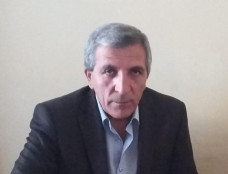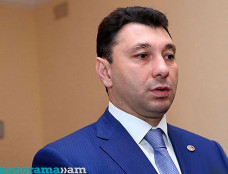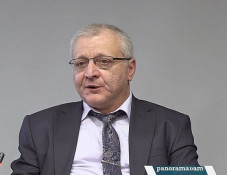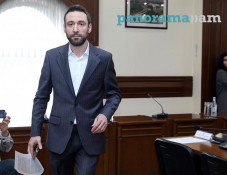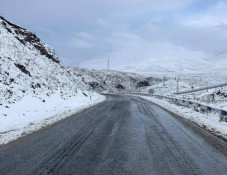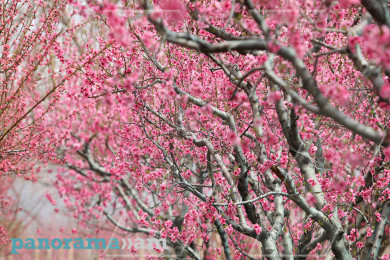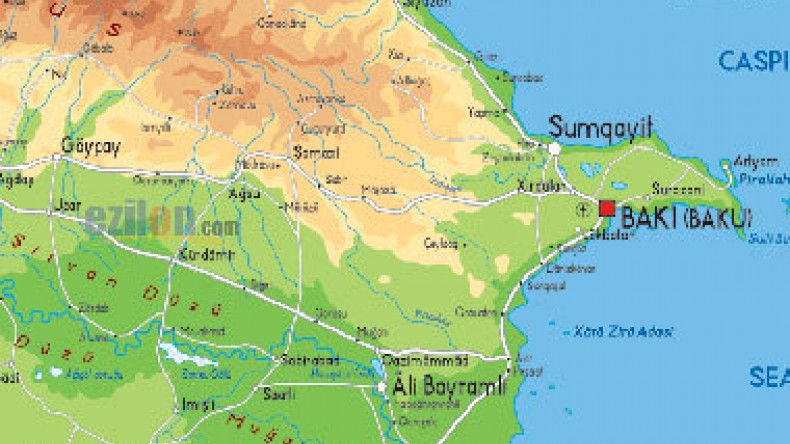
Asbarez: Rigid foreign policy ideology, faltering economy and authoritarianism converge to isolate Azerbaijan
Given the geographic proximity of the South Caucasus to Europe, the Middle East, and the former Soviet Union, virtually all developments in those areas have reverberations in Baku, Azerbaijan. Over the course of the past 18 months a new foreign policy doctrine has emerged. This shift was formally codified on Dec. 3, 2014, in a largely unnoticed 50-page Russian language memo penned by Ramiz Mehdiyev—the long-serving chief of President Ilham Aliyev’s Administration—who calls primarily for a distancing from the West because of the latter’s “unfair” criticism of Azerbaijan and “unthankful” attitude for all the sacrifices that Baku has made. In his article on the website of the Armenian-American newspaper Asbarez, expert on international political economy, Armen Sahakyan, ponders on the question what will fill in the vacuum caused by the drift away from the West.
According to Sahakyan, along with the deterioration of relations between the West and Russia, countries near Russia have been caught in the middle. Ukraine is the most vivid example of this phenomenon. “The leadership in Baku is caught in an environment of heightened security considerations, a rigid foreign policy ideology, faltering economy, post-communist inertia, and creeping authoritarianism—which converge to create increased isolation,” he writes.
Sahakyan points that the unresolved Nagorno Karabakh conflict complicates the security calculus for Baku. At the cornerstone of Azerbaijani foreign policy is the desire to maintain sovereignty and independence from any outside power—an ambitious goal in today’s regionalized world. This ideology was inspired by the late Heydar Aliyev, a former Soviet KGB general and half-a-century-long leader of Azerbaijan, whose political platform was based on the idea of ensuring Azerbaijan’s sovereignty.
As the article has it, although Azerbaijan’s oil and gas reserves are not large in comparative terms (e.g., Azerbaijan cannot supply more than 2 percent of the EU’s gas demand), they provide a sizeable revenue for the government. Aliyev Sr.’s school of thought has been carried forward by his son Ilham Aliyev, who currently serves his third uninterrupted term as president (after amending the constitution to allow him to do that). However, it is becoming increasingly hard to maintain the current foreign policy posture in the face of Azerbaijan’s declining oil production and low global energy prices.
Sahakyan highlights that the Aliyev clan has been caught in many international scandals over the past decade, earning Ilham Aliyev the title of “Corrupt Person of the Year” in 2013, awarded by the Organized Crime and Corruption Reporting Project. The regime’s so-called “Caviar Diplomacy” has been aimed at softening international criticism. However, recently the international community again became vocal against the regime’s human rights violations and crackdowns on dissidents. President Aliyev has increasingly tightened the screws on media outlets (e.g., banishing Radio Free Europe/Radio Liberty, Voice of America, and BBC) and cracking down on domestic civil society organizations.
The elite in Azerbaijan has developed an increasing sense of abandonment by the West, including within the framework of the OSCE Minsk Group within the Nagorno Karabakh conflict resolution process. It views the West as inherently pro-Armenian. The leadership believes that there is an outright conspiracy plan targeted against Azerbaijan by the Western powers in the form of a “color” revolution, Sahakyan writes. He adds that Azerbaijan’s economy has suffered in recent times due to its heavy reliance on hydrocarbon exports (and the resulting inability to diversify into other sectors), low oil prices in the world, and rising competition from shale oil and gas. As a result, in February 2015 the national currency registered a devaluation of more than 30 percent.
Despite the large-scale military hardware sales by Russia to Azerbaijan, the Aliyev Administration does everything in order not to fall back under the influence of Moscow. Yet, with Azerbaijan’s drift away from the West, Russia will likely be the one “getting the prize.” Possible Iran-West rapprochement and the resulting expansion of Iranian influence throughout the South Caucasus poses yet another challenge to Azerbaijan, which has historical animosity with Iran. Israel and Azerbaijan have developed a close partnership over the past decade, which has resulted in billions of dollars worth of arms purchases by Azerbaijan and the lease of Azerbaijani territory as a launching pad for Israeli spy drone missions into Iran, as Sahakyan has it.
“The projected decline of Azerbaijan’s relative regional power and diminished role in energy diversification for the EU caused by competing Russian and other sources of gas further decrease the geopolitical value of the country. Although the profits from the energy sector will continue to come into the country, they are projected to decrease,” Sahakyan highlights. Keeping the above-listed and other regional factors in mind, the Azerbaijani leadership has become increasingly paranoid as it watches the various revolutions, uprisings, and conflicts taking place in the region fearing that it may be next, he adds.
With America’s pivot to Asia, its disengagement from Afghanistan and Iraq, the rapprochement with Iran, and the shale revolution, the strategic importance of Azerbaijan is likely to continue to decrease for the West. A change in the balance of power may arise in the Caucasus frightening the officials in Baku, who have been so careful to maintain ties with all major regional powers and the West while refraining from allegiances with any one bloc or state. Hence the dilemma, since non-alignment will result in geographic regional isolation from the ongoing integration processes taking place in the East and West, the expert points.
In these circumstances, Artsakh’s permanent missions abroad, especially in Western countries, may be expanded to further solidify bilateral relations and deepen ties with the Western partners. Because of the lack of media freedom in Azerbaijan, the elite can hide its true losses on the line of contact and thus may be more prone to conduct subversive military activities on the ground. Without further intensifying and moving up the spiral of conflict, the Artsakh Defense Army should be prepared to respond appropriately (which it has been thus far). A balance of power is essential in stopping the Azerbaijani elite from restarting the war. The authorities in Stepanakert (Artsakh capital) also need to continue their efforts in providing a glimpse of hope to the minorities in Azerbaijan (e.g., the Talysh radio broadcasted from Shushi) who are repressed and denied fundamental rights. A democratic Azerbaijan accountable to its people is a more predictable neighbor and negotiator at the talks, according to Sahakyan.
Related:
Removing sanctions against Iran to have unfavorable influence on Turkey and Azerbaijan
Economy of Azerbaijan: increase in external debt, reduction of production and export of oil and gas
Newsfeed
Videos








